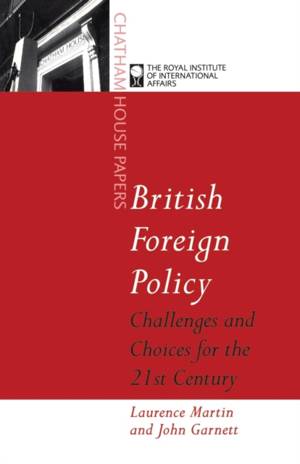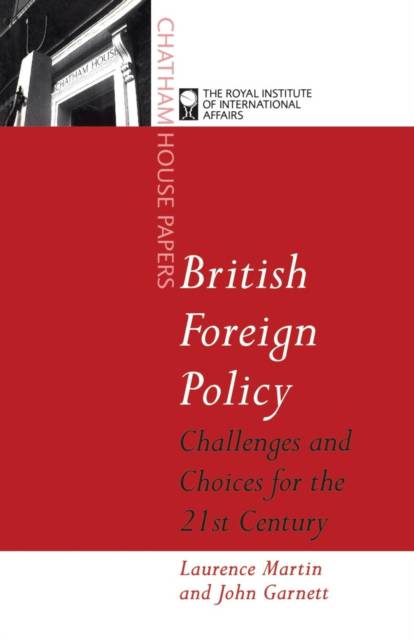
- Afhalen na 1 uur in een winkel met voorraad
- Gratis thuislevering in België vanaf € 30
- Ruim aanbod met 7 miljoen producten
- Afhalen na 1 uur in een winkel met voorraad
- Gratis thuislevering in België vanaf € 30
- Ruim aanbod met 7 miljoen producten
Zoeken
€ 186,95
+ 373 punten
Omschrijving
Has the 20th century been one of steady decline for British foreign policy? Can there be a distinct British foreign policy in age of
regionalism and globalization? This study challenges perceptions of irrevocable decline and suggests a more balanced assessment of
Britain's strengths and weaknesses. As "high politics", including security concerns diminish in importance, economic and commercial concerns increasingly seem to dictate foreign policy. On the assumption that what the population seeks is a combination of physical security, prosperity and what could be termed "moral self-approbation", this study suggests ways in which Britain could capitalize on its influence and assets to promote its interests. A framework is provided for thinking about British foreign policy at a time when globalization, multinational companies, NGOs, the European Union and other factors increasingly constrain the freedom of government and the traditional role of the foreign office.
regionalism and globalization? This study challenges perceptions of irrevocable decline and suggests a more balanced assessment of
Britain's strengths and weaknesses. As "high politics", including security concerns diminish in importance, economic and commercial concerns increasingly seem to dictate foreign policy. On the assumption that what the population seeks is a combination of physical security, prosperity and what could be termed "moral self-approbation", this study suggests ways in which Britain could capitalize on its influence and assets to promote its interests. A framework is provided for thinking about British foreign policy at a time when globalization, multinational companies, NGOs, the European Union and other factors increasingly constrain the freedom of government and the traditional role of the foreign office.
Specificaties
Betrokkenen
- Auteur(s):
- Uitgeverij:
Inhoud
- Aantal bladzijden:
- 176
- Taal:
- Engels
- Reeks:
Eigenschappen
- Productcode (EAN):
- 9781855674691
- Verschijningsdatum:
- 24/04/1998
- Uitvoering:
- Paperback
- Formaat:
- Trade paperback (VS)
- Afmetingen:
- 140 mm x 216 mm
- Gewicht:
- 208 g

Alleen bij Standaard Boekhandel
+ 373 punten op je klantenkaart van Standaard Boekhandel
Beoordelingen
We publiceren alleen reviews die voldoen aan de voorwaarden voor reviews. Bekijk onze voorwaarden voor reviews.











